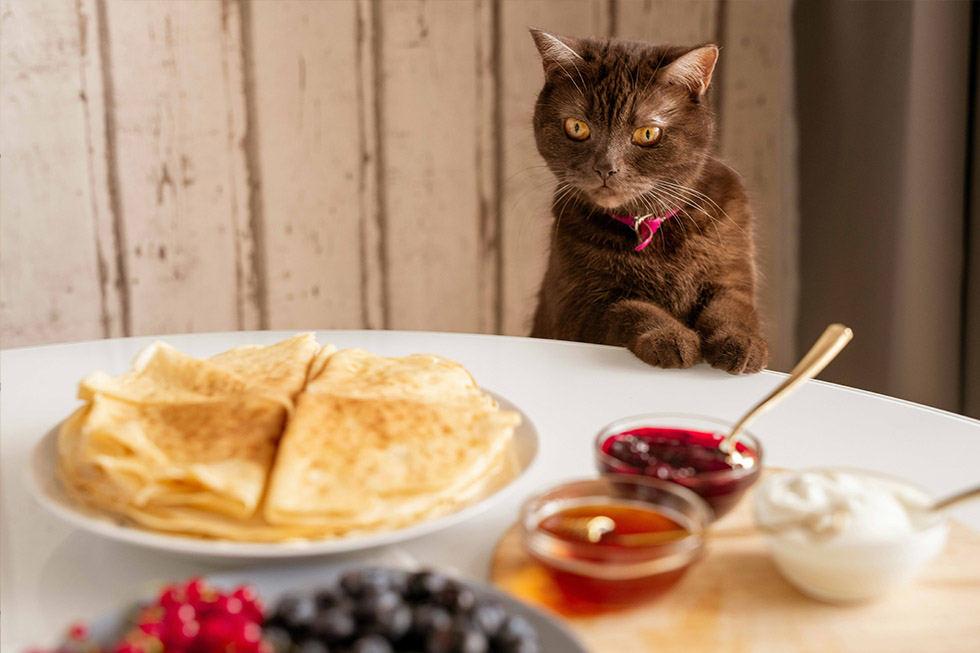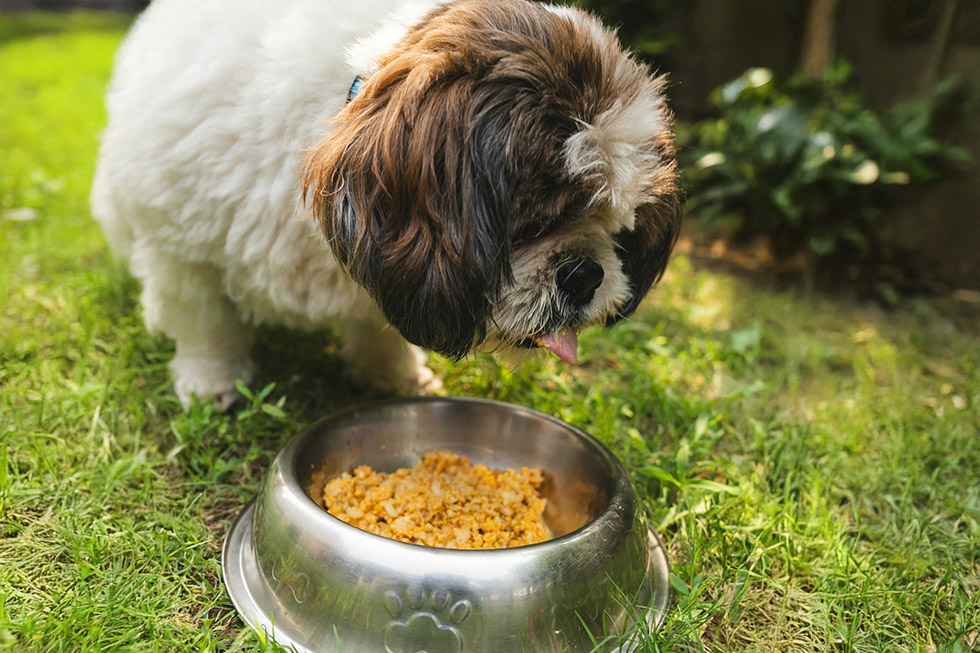There is no doubt about our pets’ vital role in our homes. But there is often one question that many pet owners don’t ask themselves unless they notice their furry companion battling the bulge – cue the New Year weight issues. So, are you feeding your pet the right diet?
Understanding proper nutrition is vital for your furry companion’s health and well-being. Pet Insurance Australia has worked hard to create essential pet nutrition tips, highlighting common deficiencies and warning against toxic foods.
As 2025 kicks into action, and many of us are considering a healthier diet and exercise regime for the New Year, it’s also a good idea to assess our pet’s diet and health. Many unsuspecting pet owners don’t realise that those extra titbits or sneaky treats could be causing issues in our beloved canine companions and feline friends.
Understanding My Pet’s Nutritional Needs
Every pet has unique dietary requirements influenced by their species, breed, age, size, and activity level. Pet nutritional needs in Australia can also differ from other places in the world, particularly when it comes to hydration and for working dogs – protein. Dogs need a balance of protein, carbohydrates, fats, vitamins, and minerals, while cats, as obligate carnivores, require high-protein diets rich in taurine and arachidonic acid.
#TopTip: For optimal nutrition, always opt for Australian-made pet food certified by the Pet Food Industry Association of Australia (PFIAA). This certification ensures that the pet food meets the nutritional standards set by the association, providing you with the assurance that you are feeding your pet a high-quality, balanced diet.
Common Nutritional Deficiencies in Australian Pets
Despite the availability of premium pet foods, some pets still experience deficiencies due to dietary gaps or health issues. Here are some of the common pet nutritional deficiencies in Australia:
- Calcium Deficiency: This leads to weak bones or dental problems, especially in homemade diets.
- Iron Deficiency: This may result in anaemia, particularly in pets on vegetarian diets.
- Vitamin A Deficiency: Causes vision and skin problems, especially in cats.
Signs of pet nutritional deficiency in Australia can vary, but it’s paramount you seek veterinary advice if you notice any of the following:
- Dull, brittle, or thinning coat
- Dry, flaky, or irritated skin
- Lethargy or reduced energy levels
- Weight loss or difficulty gaining weight
- Digestive issues, such as diarrhoea or vomiting
- Poor wound healing or frequent infections
- Weakness or lack of muscle tone
- Abnormal behaviour or decreased appetite
- Bone or joint problems, such as limping
- Vision problems or night blindness
#TopTip: Always speak with your vet before adding supplements to your pet’s diet. Remember that over-supplementing your cat or dog can be harmful.
What Foods Should I Include in My Pet’s Diet?
Feeding your pet high-quality, nutrient-dense food is critical for its health and longevity. The great news is that there is a wide range of healthy pet food options in Australia that will ensure your pet maintains its perfect weight and nutritional requirements as it grows through the different stages of its life.
#TopTip: Cats are often portrayed as milk lovers, but the truth is most cats are lactose intolerant. While kittens can digest lactose in their mother’s milk, adult cats typically lose the enzyme (lactase) needed to break down lactose as they age. Consuming milk or dairy products can lead to digestive upset, including diarrhoea, vomiting, and stomach pain. Although the occasional lick of milk is unlikely to cause harm, it’s best to avoid giving your cat dairy products altogether. Instead, opt for water as their primary source of hydration and stick to a diet specifically formulated to meet their nutritional needs.

What Should Australian Pets Be Fed For A Balanced Diet?
Sadly, there is much misinformation on the internet about what recommended foods you should feed your pet. The key with any diet change or addition is to always seek professional advice and steer clear of any human foods that are not suitable for your pet.
- Commercial Pet Food: Look for Australian-made brands that meet nutritional standards.
- Fresh Proteins: Lean meats like chicken, turkey, or fish for strong muscles.
- Healthy Carbohydrates: Brown rice and sweet potatoes for sustainable energy.
- Omega Fatty Acids: Found in fish oils and flaxseeds for a shiny coat.
- Fresh Vegetables: Safe options include carrots, green beans, and peas.
What Toxic Foods Should I Avoid For My Pet?
There is a long list of foods toxic to pets in Australia. One thing all pet owners need to consider is whether the food they are feeding their pet suits its nutritional needs. With many social media posts praising pets for eating fine-dining foods fit for humans, this trend could lead to issues with your pet’s overall health. Australian pet owners must be cautious of several foods that can seriously harm their furry friends.
List Of Common Toxic Foods For Pets In Australia:
- Macadamia Nuts: Highly toxic to dogs, causing tremors and vomiting.
- Grapes and Raisins: Lead to kidney failure in dogs.
- Onions and Garlic: Damage red blood cells, causing anemia.
- Chocolate: Contains theobromine, which is lethal to dogs and cats.
What Are The Risks of Table Scraps and Human Foods For My Pet?
Feeding pets table scraps can be a risky practice. Not only can it cause immediate health problems, but it can also contribute to long-term issues such as obesity and digestive issues. It’s important to be aware of the potential risks and be cautious when offering human foods to your pet.
- High-Fat Foods: Can trigger pancreatitis in dogs.
- Sugary Treats: Promote obesity and dental disease.
- Salty Snacks: Excessive salt intake may cause sodium poisoning.
#TopTip: Keep treats to under 10% of your pet’s daily caloric intake, always monitor how much extra food you are feeding, and remove this from your pet’s mealtime.

How Can I Transition My Pet To A New Diet Safely?
How to change pet food safely is one of the most common questions asked when considering a new diet for your beloved pet. Sadly, many do not realise the impact this will have on your pet until you notice the side effects, which may include upset stomach and diarrhoea. This can be particularly common in puppies whose owners wish to change their diet quickly after their arrival.
The key to changing your pet’s diet safely is to transition to a new food:
- Mix the new food with the old over 7–10 days.
- Monitor for any signs of intolerance, such as vomiting or diarrhoea.
Why Are Regular Vet Check-Ups Key With My Pet?
The importance of vet check-ups for pets is paramount throughout your pet’s lifetime. Routine vet visits help ensure your pet’s diet is balanced, and their overall health is maintained. Your local vet can be a wealth of information, particularly on any local issues that may occur, and also ensuring that your cat or dog is at their best weight. Routine vet checks can also help keep your pet’s teeth, nails, coat, and everything else in the best possible condition.
FAQs About Pet Nutrition in Australia
Q: What is the best pet food in Australia?
Look for PFIAA-certified brands
Q: How do I know if my pet has a nutritional deficiency?
Signs include dull coats, lethargy, or unexplained weight loss. Consult your vet if you notice these symptoms.
Feeding your pet a healthy, balanced diet tailored to their needs is one of the best ways to ensure they live a long, happy life. You can give your furry friend the best care possible by incorporating nutrient-rich foods and avoiding harmful ingredients.
Visit https://www.petinsuranceaustralia.com.au/category/pet-care/health-and-nutrition/ for more pet health tips tailored to Australian pets.
Post Views: 1

Nadia Crighton is a renowned and accomplished professional in the fields of Journalism, Public Relations, and Writing, with an extensive career spanning over 25 years, 20 of which have been dedicated to promoting the health and well-being of pets.


